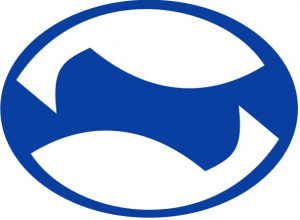Graduate Program Excellence Program – UFRPE
Institutional Self-Assessment Process of the PPG-RPAq
The Institutional Self-Assessment of the Graduate Program in Animal Resource Science (PPG-RPAq) at the Federal Rural University of Pernambuco (UFRPE) aligns with the guidelines established by the Coordination for the Improvement of Higher Education Personnel (CAPES) and the university's internal policies. This process aims to monitor, analyze, and improve the program's performance, ensuring its academic excellence and alignment with the demands of society.
1. Objectives of the Self-Assessment
The self-assessment process seeks to:
-
Evaluate the effectiveness of teaching, research, and extension activities;
-
Identify strengths and areas for improvement in the program;
-
Ensure compliance with national and international quality standards;
-
Enhance decision-making processes for program improvements;
-
Strengthen the integration of the program with the external academic and professional community.
2. Methodology
The self-assessment is conducted systematically and periodically, involving faculty, students, and administrative staff. The methodology includes:
-
Data Collection: Gathering qualitative and quantitative information through surveys, interviews, and performance indicators;
-
Analysis of Indicators: Evaluating academic performance, scientific production, internationalization, and student progress;
-
Feedback and Adjustments: Discussing results in meetings, developing action plans, and implementing improvements;
-
Follow-up and Monitoring: Reviewing the effectiveness of implemented actions and making necessary adjustments.
3. Key Evaluation Criteria
The self-assessment process considers various aspects, including:
-
Faculty Performance: Research productivity, teaching quality, and engagement in extension activities;
-
Student Performance: Progress in research, academic achievements, and participation in scientific events;
-
Infrastructure and Resources: Availability and quality of laboratories, libraries, and technological resources;
-
Scientific Production: Quantity and impact of publications, patents, and technological innovations;
-
Internationalization: Participation in international collaborations, student exchange programs, and joint research projects;
-
Social Impact: Contribution of research and extension activities to the development of society and the professional field.
4. Results and Continuous Improvement
Based on self-assessment results, action plans are developed to address identified challenges and enhance strengths. The continuous improvement cycle involves:
-
Implementing strategic actions for faculty and student development;
-
Enhancing research and extension projects to meet social and scientific demands;
-
Strengthening partnerships with national and international institutions;
-
Improving academic and administrative management processes.
5. Conclusion
The Institutional Self-Assessment Process of the PPG-RPAq at UFRPE is essential for ensuring the quality and continuous improvement of the program. By systematically evaluating academic and research activities, the program aligns itself with national and international standards, reinforcing its commitment to excellence and innovation in Animal Resource Science.
Through this structured approach, PPG-RPAq aims to consolidate itself as a reference in graduate education, contributing to scientific and technological advancements and the professional development of its students and faculty.

